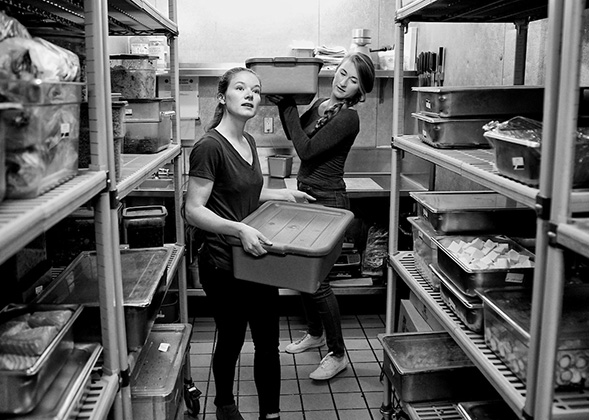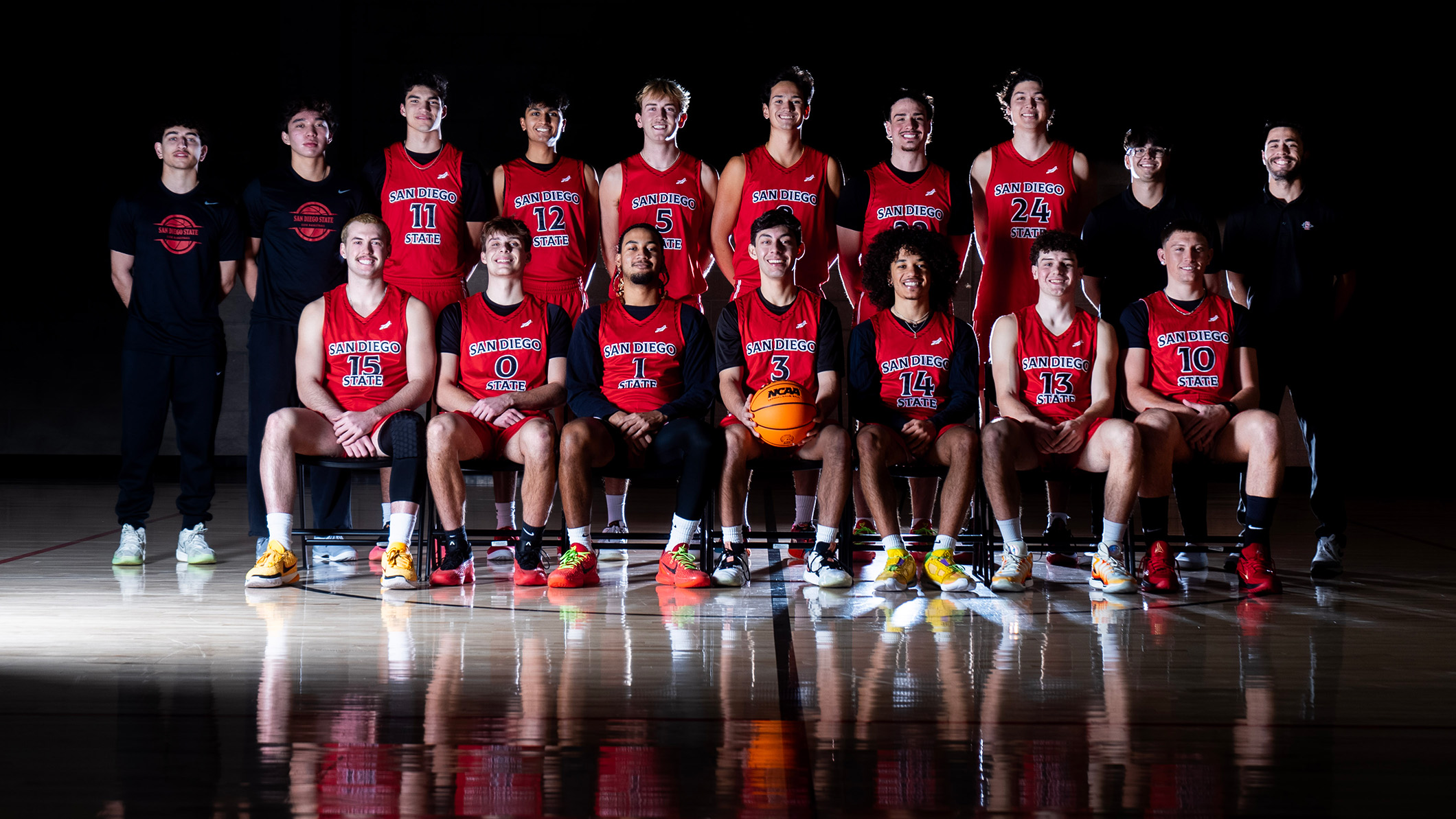Food for Thought
A pot of rice became the catalyst for a new SDSU student-run business.

This story is featured in the spring 2019 issue of 360: The Magazine of San Diego State University.
Reyanne Mustafa’s big idea started with a problem. The San Diego State University student was working an evening shift at local restaurant, True Food Kitchen, when she saw the chef pick up a 30-pound pot of untouched rice and move to throw it in the trash. It was closing time, and the restaurant had no need for the surplus grain.
Mustafa jumped in front of the trash can and told the chef she’d take the rice. The chef considered her. The waste bothered everyone, but it was a daily occurrence and an inevitable one in the restaurant business.
“What are you going to do with it?” he asked.
“I don’t know,” Mustafa said, thinking on her feet. “I’ll feed people.”
And the seed of her company, Soul Much, was planted. At first, Mustafa packed the rice in foil and handed it out to the homeless; but that was an exhausting process, one she couldn’t sustain for long. In the back of her mind, she wondered what product she could make with upcycled grain. A protein powder? A granola bar? A cookie?
What Mustafa didn’t know at the time is that SDSU is home to an award-winning entrepreneurship ecosystem organized to help would-be innovators like her: students, faculty and staff who have an idea but don’t quite know how to turn it into a product.
This ecosystem, along with Mustafa’s expansive knowledge of nutrition and sustainability (her major and minor, respectively), were critical in making Soul Much into what it is today: a burgeoning cookie company with its own commercial bakery, a handful of employees, and a high volume business in venues like the popular Ocean Beach farmers market.
Mustafa and her business partner, fellow True Food server and SDSU environmental science major Kristian Krugman, applied and were accepted into the ZIP Launchpad, SDSU’s competitive startup incubator.
Their idea to upcycle grain was a good one, but it needed to be refined with market research.
The duo hit natural markets throughout the region, interviewing shoppers about their preferences on everything from product taste to texture. They found there was room in the natural foods arena for an upcycle cookie, and decided they would use cooked surplus grain from restaurants, along with pulp from local juice shops, as the base for their confections.
Mustafa got to work baking. She spent five months perfecting her recipes, using ingredients like beet pulp and used coffee grounds.
“Some days I felt like I was so close, and then others I felt like I took 20 steps backward,” she recalled. She eventually settled on flavors like carrot ginger turmeric, red velvet beet and chocolate espresso.
Throughout those difficult early days, the ZIP Launchpad and SDSU’s Lavin Entrepreneurship Center, which provides resources and education to entrepreneurially minded students, helped Soul Much build a lean business plan and make critical connections with mentors and fellow entrepreneurs who offered invaluable advice.
“We got a crash course MBA in one semester,” said Krugman.
SDSU’s entrepreneurial ecosystem infused the company with critical resources from the start, including more than $10,000 in equity free funding to build the business and help its founders travel to pitch competitions, where they won even more start-up funding.
Soul Much participated in the Aztec Cooperative Fund, which gives entrepreneurial teams funding to hire SDSU students, allowing the company to work with graphic design students in crafting their logo, packaging and website.
“It’s so magical when you surround yourself with people who believe in you, even when you don’t believe in yourself yet,” Mustafa said. “I think that was the key ingredient to our successful recipe.”



